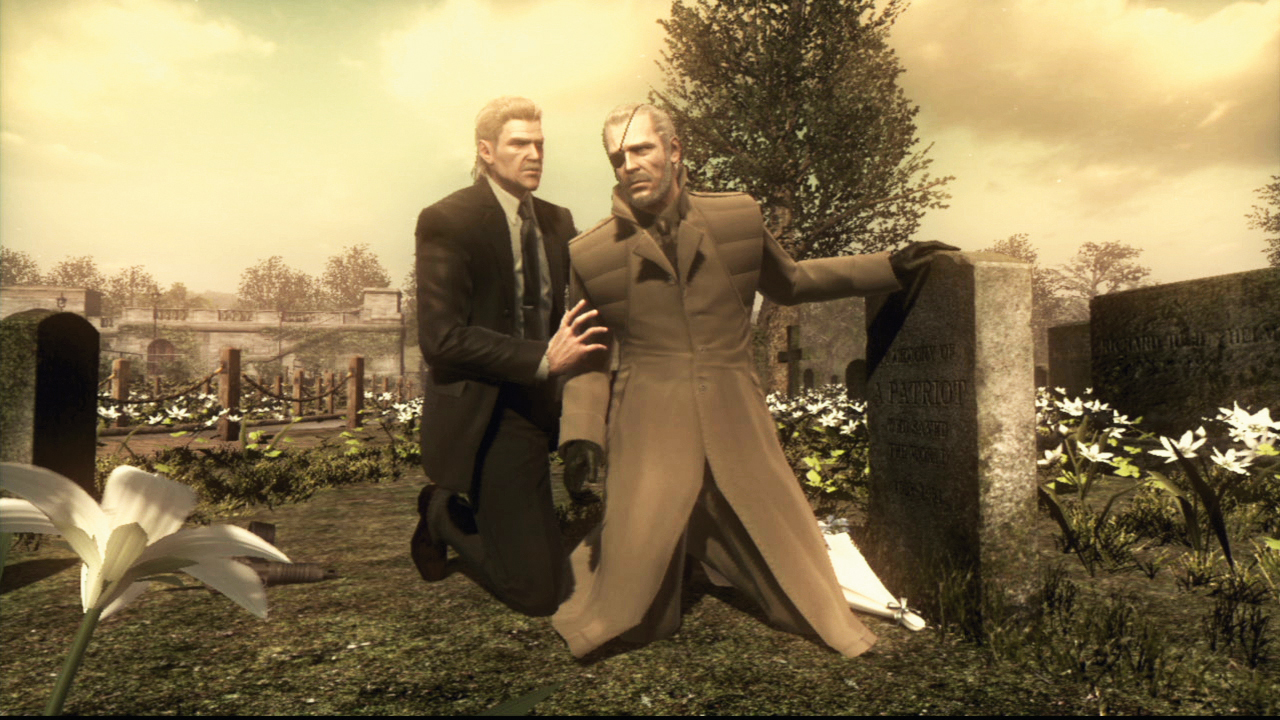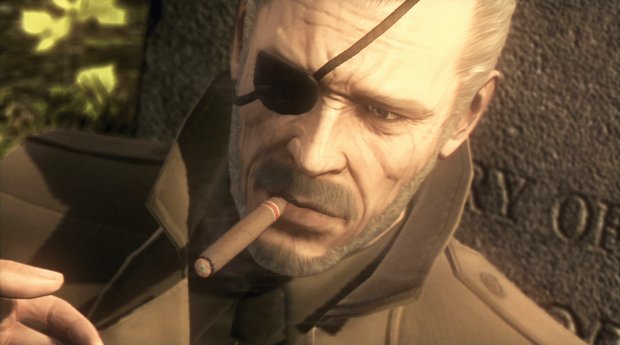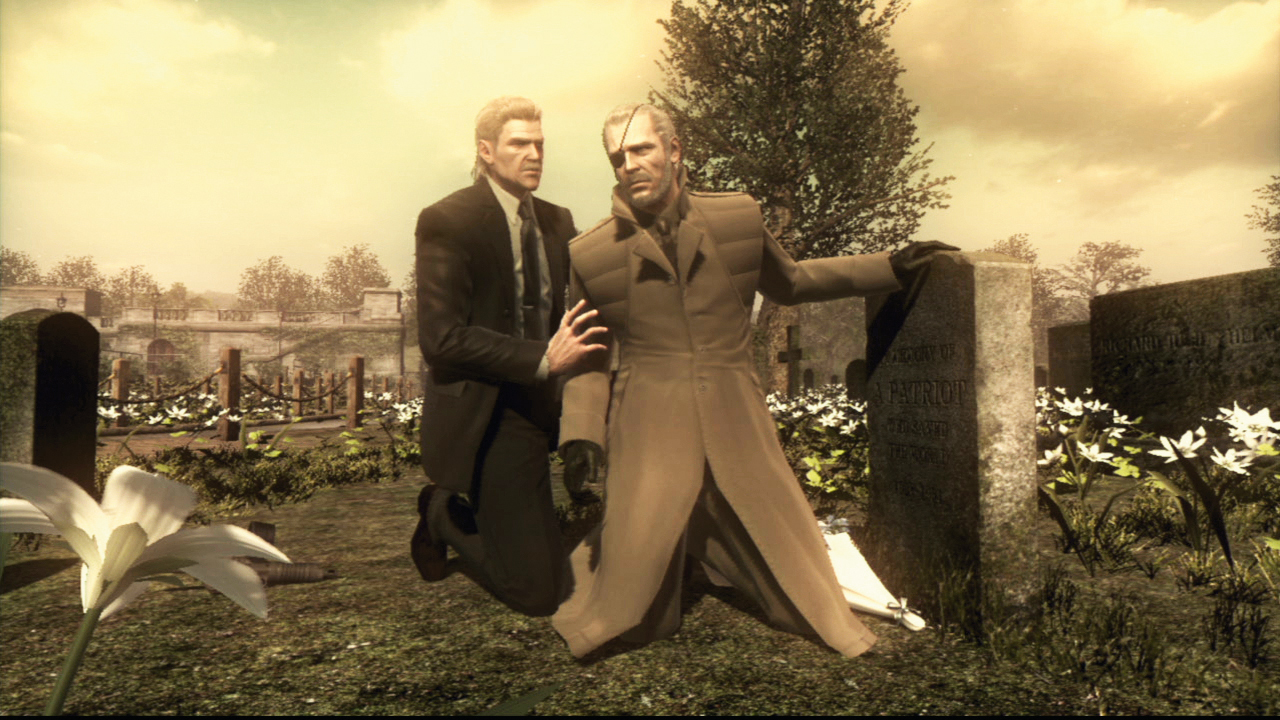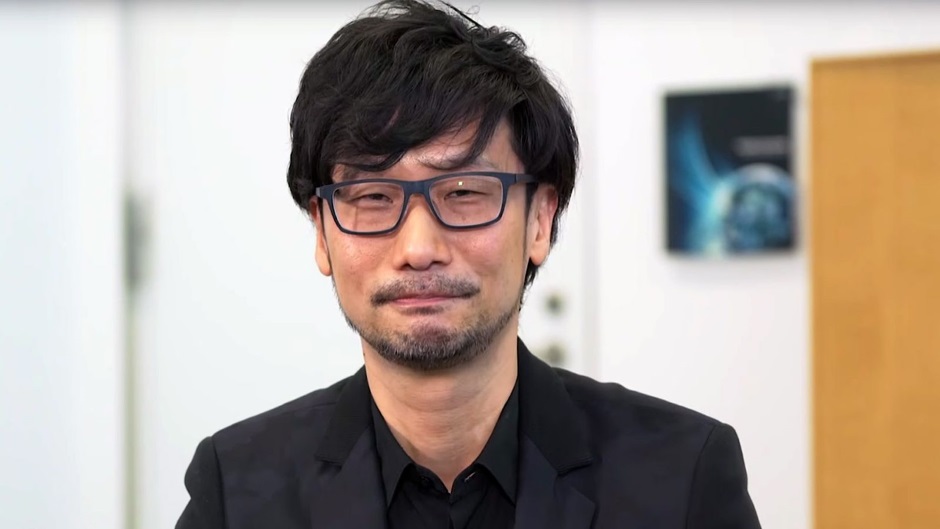Why MGS4's final scene is more powerful than we ever realised
As Hideo Kojima's maligned Metal Gear Solid 4: Guns of the Patriots turns 10 years-old, we pay tribute to its powerful final scene

“This is good, isn’t it?” I’d always loved the final words of Metal Gear Solid 4 as Big Boss shares his final cigar with ‘son’ Solid Snake. I loved the petulant, contrary, nature of it; a series derided for its indulgent cutscenes and clumsy dialogue, concluding with a statement so concise, yet so enigmatic. What is good exactly? The MGS saga? Is Kojima breaking the fourth wall with Big Boss’ dying words to deliver the glowing verdict on his own creation – which, at the time, we believed to be the final MGS game, and certainly the last appearance of Solid Snake?
Or is Big Boss referring to spending his final moments reunited with Snake – the clone he respects as a soldier, and as a man, who he almost views as a brother? Or is he revelling in the physical sensation of the moment? The prickly rush of cigar smoke as the setting sun warms his failing body? The answer is all of those things, or none or them, with their ambiguous certainty compacted in five simple words – but I never truly understood the scene’s significance until I started to read more about Hideo Kojima’s upbringing and a tragedy that shaped the series that we know and love.
Kingo Kojima, a pharmacist, named his son based on the most common name among the doctors he met. He travelled a lot on business and watched a lot of movies, a trait he impressed on young Hideo. “I wasn’t allowed to go to bed till the film had finished: the opposite of how it is for most children”, Hideo recalls. Kingo was a keen fan of literature, a sculpter and artist, although his biggest regret was never joining the navy: the war ended when he was 15 and Kingo felt the moment had passed. “My father also made plastic models, like of warships and castles” recalls Kojima, “He’d say, ‘Watch me carefully, Hideo,’ and take a magic marker and paint the connecting pieces in the stone walls around the castle, then wipe them with paint thinner from the top. ‘You should always make these fine lines black like this,’ he’d say.”
“I was just 13 when he [my father] died,”
Hideo Kojima
Hideo acquired his father’s eye for detail, but was only able to observe so much – Kingo died suddenly when Hideo was in middle school. “I was just 13 when he died,” he says. “It was hard and lonely but, in a way, it strengthened my resolve to become a filmmaker,” says Kojima. “I’ve been stuck with something of a father complex ever since. All the Metal Gear games so far have been paternal stories. They’re all about killing your father (laughs).”
Kingo Kojima wanted to join the navy, and would clamber to the rooftops to watch the bombs fall during the Tokyo air raids. He was full of admiration for the soldiers, but disgusted by war. As a child, he made Hideo watch an anti-war film, Night and Fog. “This isn’t the kind of movie a child can understand though,” says Kojima, “There was this other movie, but I can’t remember the name of it. America and Germany are fighting, and they run out of resources and their casualties are mounting. It gets to the point where they’re no longer able to continue fighting, so they agree to a cease-fire for a day. As a child I couldn’t understand this. If they can sit down and talk like that, why do they even need to fight in the first place? I thought.”
"I never thought of you as a son, but I always respected you as a soldier... and as a man."

MGS4’s final scene accrues gravity when viewed through this lens – Solid Snake reunited with Big Boss, and by proxy, Hideo Kojima with the father he’d spent 30 years without. For all the series’ monstrous complexities, Big Boss’ attempt to explain everything, from the formation of The Patriots to Ocelot’s hypnotherapy in the series’ final scene, is Kojima’s complex tribute to his father – and his own nod to the gene, meme and scene message that the MGS saga has preached.
At The Boss’ graveside, Hideo Kojima pays the ultimate tribute to his father’s legacy – with the culmination of his contradictory anti-war series, MGS, that makes heroes of soldiers, while preaching against the dangers of combat, philosophy, dogma and regimes. In the same breath, it concludes with a simple human moment, of a son reaching to light his stumbling father’s cigar, and carry forth the legacy, and privilege, his father provided. For all the grand events of human history, and all the sweeping speeches, father and son find solace in a quiet moment of simple pleasure.
Sign up to the GamesRadar+ Newsletter
Weekly digests, tales from the communities you love, and more
"Everyone Dies. You can't stop it. You can't run from it."
In 2014, my own father died after his long, but stable, illness suddenly accelerated. In the 18 months we knew that his time was limited, our relationship hadn’t really changed from the one I’d known for the previous 39 years of my life. I tried to reach out to have that conversation – whatever that was supposed to be – about whatever key events of our lives had felt worth discussing, but he’d just brush it aside. So we talked about football, like we always did. Or he asked about my kids. Always tender and thoughtful, but never opening up or exposing his feelings. “I’ll put your mother on,” was his usual reply whenever I’d call home.

When his illness was grave, I took it upon myself to write my dad a letter which laid out everything I’d enjoyed from our time together, how I felt about a lot of the big life decisions I’d taken – especially the ones we’d disagreed on – and how much I loved and appreciated him. I finished the email around 2am on a Sunday night, and decided to send it the next morning. At 9am the following day, my mother rang to say my father had just passed.
It’d be easy to reflect on that moment, and work myself into some kind of turmoil – and God knows I’ve re-read that mail and cursed myself, and him, for never saying those things earlier. But in truth, I just think he kind-of knew; his actions always betrayed how much he cared, and I’m not really sure what The Conversation was going to solve. As time has worn on, I haven’t really regretted not sending that email, but damn, what would I give for just another banal moment together. Just a quick conversation about the weekend’s football before he put my mother on the line. For all the big things that could be said – the formation of The Patriots and shape of the 20th century notwithstanding – that was our shared cigar, our moment we stopped to reflect on what we really meant to each other… and that’s what I’ll never forget.
"I feel like I’m needed to fill a role for them. I feel like I have an obligation."

In 2013, I interviewed Hideo Kojima and asked him how closely the moments in the Metal Gear series mirrored what he felt – and whether they reflected what he wanted to say to the important people in his life? Kojima paused, before continuing in a lowered tone. “In the beginning, I would say the answer to that is yes. I had very specific people in mind when I created a game, and I had a message that I wanted to pass along. But now my thought process is changing. This has come from 25 years of creating games and now I’m traveling around the world meeting many fans who I’ve never seen before in my life. They don’t know me, I don’t know them and they’re just fanatic. I feel like I’m needed to fill a role for them. I feel like I have an obligation.
”Shortly before Big Boss utters his final words, he apologises to the mentor he has lived without for over 40 years. “Boss... You were right. It’s not about changing the world. It’s about doing our best to leave the world the way it is. It’s about respecting the will of others... And believing in your own. Isn’t that what you fought for? At last I understand the meaning behind what you did. At last I understand the truth behind your courage. It’s almost time for me to go.” I think I understand the meaning of that closing scene. At least, I think I do. This is good, isn’t it? Metal Gear Solid 5 will be Hideo Kojima’s final Metal Gear game – and I plan to enjoy the moments we have left.
***This article was originally published on Friday, 21st August 2015***
Dan Dawkins is our resident MGS expert and is currently theorising about Hideo Kojima's upcoming PS4 exclusive Death Stranding
FGS Content Director. Former GamesRadar+ EIC, GTAVoclock host, and PSM3 editor; with - *counts on fingers and toes* - 20 years editorial experience. Loves: spreadsheets, Hideo Kojima and GTA.



